Table of Contents
ToggleUnderstanding the National Curriculum Framework (NCF) for the Foundational Stage
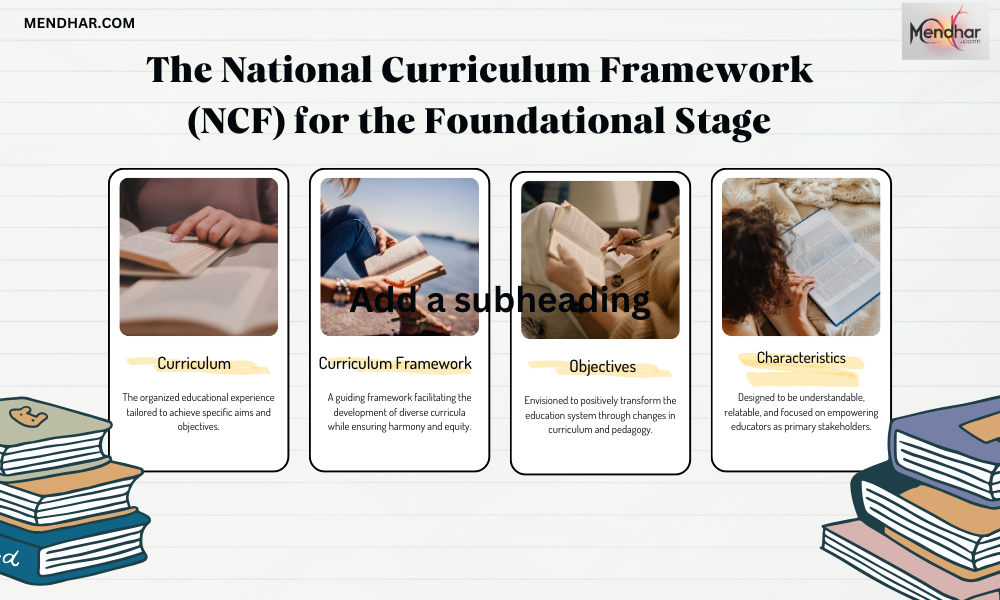
In the dynamic landscape of Indian education, the National Curriculum Framework (NCF) for the Foundational Stage emerges as a beacon of change, rooted in the vision of the National Education Policy (NEP) 2020. This framework is designed to cater to children aged 3 to 8 years, encompassing a diverse array of educational institutions across India. Let’s delve into the intricacies of this transformative initiative and explore its various facets.
Introducing The National Curriculum Framework :
The NCF is a pivotal component of the 5+3+3+4 Curricular and Pedagogical restructuring of School Education, as envisaged in the NEP 2020. It serves as a comprehensive guide, shaping the educational journey of students during their formative years. At its core, the NCF aims to foster a holistic learning environment, encompassing diverse elements such as goals, syllabi, pedagogical practices, and assessment methods.
Key Components of The National Curriculum Framework:
| Component | Description |
|---|---|
| Curriculum | The organized educational experience tailored to achieve specific aims and objectives. |
| Curriculum Framework | A guiding framework facilitating the development of diverse curricula while ensuring harmony and equity. |
| Objectives | Envisioned to positively transform the education system through changes in curriculum and pedagogy. |
| Characteristics | Designed to be understandable, relatable, and focused on empowering educators as primary stakeholders. |
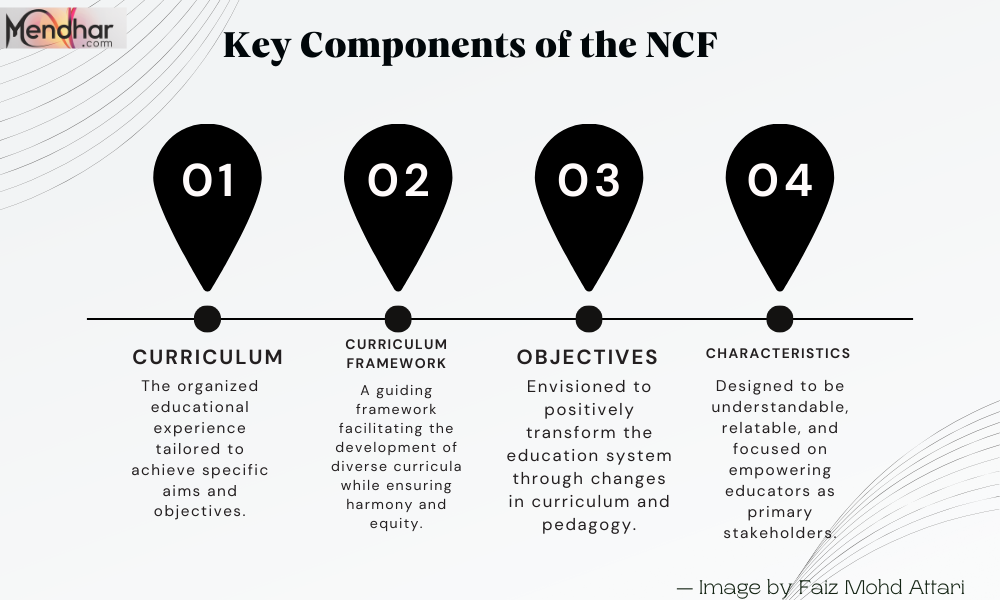
Objectives of the National Curriculum Framework (NCF) for the Foundational Stage:
The overarching goal of the National curriculum framework (NCF) is to catalyze positive changes in the Indian school education system, aligning with the principles laid out in the NEP 2020. It seeks to not only revolutionize educational ideas but also transform practices, emphasizing the pivotal role of educators in shaping the learning experiences of students.
Characteristics Empowering Educators
- Accessible: Grounded in the latest research while being user-friendly for practitioners.
- Relevant: Offers insights into the envisioned educational landscape and the roles of various stakeholders.
- Teacher-Centric: Places teachers at the forefront of educational transformation, recognizing their pivotal role.
- Practice-Oriented: Provides practical guidance with real-life illustrations to enhance usability and applicabili
How Children Learn at the Foundational Stage:
At the heart of education lies a fundamental truth: children are natural learners. Their boundless curiosity, innate sense of wonder, and insatiable desire to explore the world around them form the cornerstone of their learning journey. Understanding how children learn at the foundational stage is key to unlocking their full potential and nurturing their budding intellects. Let’s delve into the fascinating world of early childhood education and explore the myriad ways in which children absorb knowledge, skills, and experiences.
The Power of Play
Children Learn Best Through Play
| Activity | Learning Outcome |
|---|---|
| Running, Jumping | Physical development, spatial awareness |
| Crawling, Balancing | Motor skills, coordination |
| Repetition | Reinforcement of concepts |
| Spontaneous Responses | Cognitive development, problem-solving |
| Rhythm | Language development, auditory processing |
| Manipulation | Hands-on learning, sensory exploration |
| Exploration | Curiosity, discovery |
| Experimentation | Scientific inquiry, critical thinking |
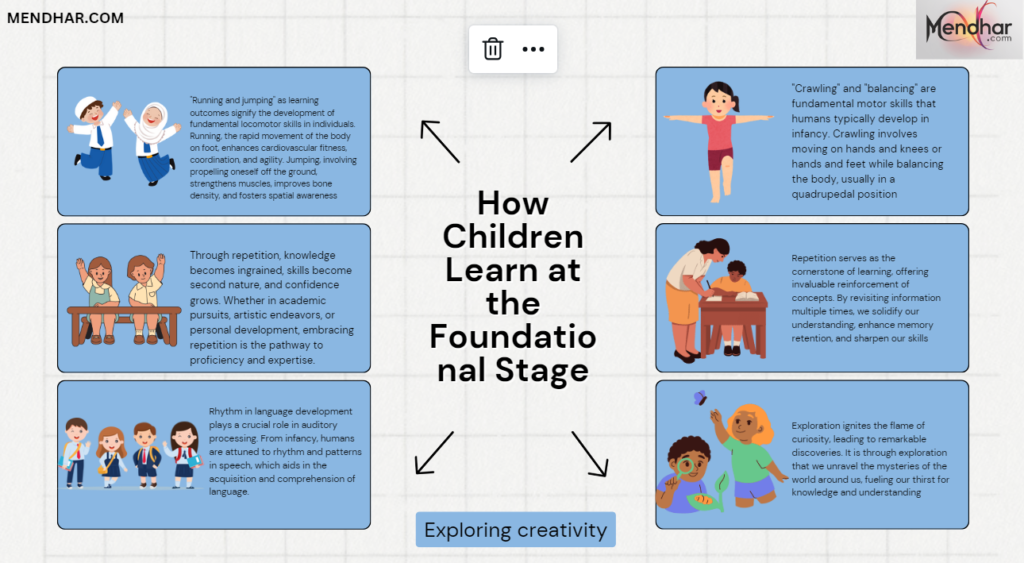
Active Engagement and Interaction:
At the foundational stage, learning is an active and interactive process. Children thrive when they engage in play and interact with both peers and experienced mentors. Through social and cultural experiences, they assimilate new information, constantly adapting their perceptions and experiences.
Anchoring Learning Through Relationships
| Relationship | Impact on Learning |
|---|---|
| Nurturing | Emotional security, confidence, optimism |
| Curiosity | Encouragement of exploration and questioning |
| Communication | Language development, expression |
| Safety | Psychological well-being, risk-taking |
| Support | Confidence-building, resilience |
Fostering Creativity and Innovation:
Strengthening Playfulness
By providing children with opportunities for active participation and exposure to real-world materials, educators and caregivers can nurture their creativity, imagination, and problem-solving skills. These experiences serve as catalysts for learning, sparking innovation and ingenuity in unique and diverse ways.
Conclusion
At the foundational stage, learning is not confined to the four walls of a classroom; it is a dynamic and immersive experience that unfolds through play, interaction, and nurturing relationships. By understanding and harnessing the innate abilities of children, we can cultivate a generation of lifelong learners who are equipped with the skills, knowledge, and resilience to thrive in an ever-changing world.
In essence, how children learn at the foundational stage is a testament to the incredible power of curiosity, play, and human connection. By embracing these principles, we can unlock the boundless potential of every child and lay the foundation for a brighter future.
Frequently Asked Questions (FAQs) about the National Curriculum Framework (NCF) for the Foundational Stage
What is “the National Curriculum Framework” (NCF) for the Foundational Stage?
- The NCF for the Foundational Stage is a guiding document developed based on the vision of the National Education Policy (NEP) 2020. It outlines the educational framework for children aged 3 to 8 years, encompassing diverse institutions across India.
What is the Foundational Stage in the NCF?
- The Foundational Stage refers to the initial phase of schooling, catering to children between the ages of 3 to 8 years. It marks the beginning of the 5+3+3+4 Curricular and Pedagogical restructuring of School Education, as envisioned in the NEP 2020.
What does the NCF aim to achieve at the Foundational Stage?
- The primary objective of the NCF is to facilitate positive transformations in the Indian school education system by aligning curriculum and pedagogy with the principles outlined in the NEP 2020.
What are the key components of the NCF for the Foundational Stage?
- The NCF encompasses various elements such as goals and objectives, syllabi, pedagogical practices, assessment methods, teaching-learning materials, school and classroom practices, and the overall learning environment and culture of institutions.
How does the NCF emphasize diversity and inclusivity?
- The NCF underscores the importance of tailoring curricula to reflect the diverse socio-cultural contexts across different states and regions of India. It aims to empower institutions and educators to develop contextually relevant curricula while ensuring equity and inclusivity.
Who is primarily involved in the implementation of the NCF?
- Implementation of the NCF involves collaboration among various stakeholders including teachers, educational administrators, curriculum developers, examination boards, and policymakers at the state and national levels.
How does the NCF support teachers in their role?
- The NCF places teachers at the forefront of educational transformation, recognizing their pivotal role in shaping the learning experiences of students. It provides guiding principles, goals, structures, and elements to empower teachers in curriculum development and implementation.
Is the NCF adaptable to the unique needs of different states and regions?
- Yes, the NCF acknowledges the diverse educational contexts across states and regions of India. It allows for flexibility in curriculum development, enabling states to align educational practices with their unique cultural, social, and linguistic landscapes.
How does the NCF promote active learning and engagement among students?
- The NCF emphasizes the importance of active learning through play and interaction, fostering curiosity, creativity, and problem-solving abilities among children at the foundational stage.
Where can I find more information about the NCF for the Foundational Stage?
- Detailed information about the NCF can be accessed through official educational websites, publications, and resources provided by relevant educational authorities at the national and state levels.


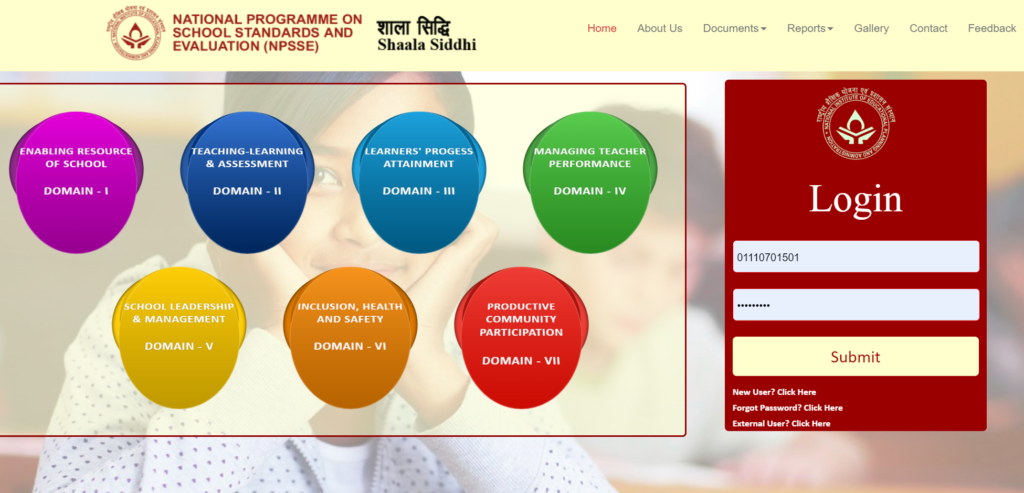
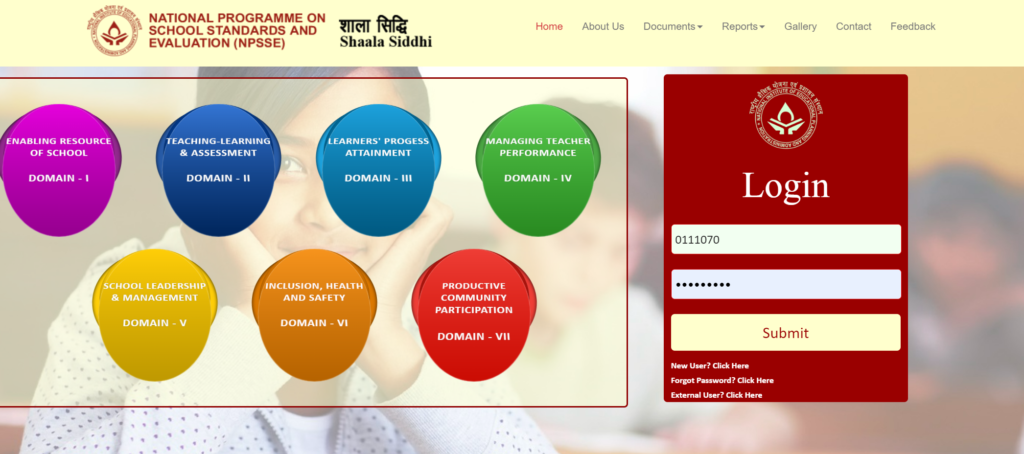
Hi there,
My name is Mike from Monkey Digital,
Allow me to present to you a lifetime revenue opportunity of 35%
That’s right, you can earn 35% of every order made by your affiliate for life.
Simply register with us, generate your affiliate links, and incorporate them on your website, and you are done. It takes only 5 minutes to set up everything, and the payouts are sent each month.
Click here to enroll with us today:
https://www.monkeydigital.org/affiliate-dashboard/
Think about it,
Every website owner requires the use of search engine optimization (SEO) for their website. This endeavor holds significant potential for both parties involved.
Thanks and regards
Mike Marshman
Monkey Digital
Informative
Pingback: NEP 2020 highlights -
Pingback: SO 176: Empowering Pahari Speaking Peoples via ST Reservation -